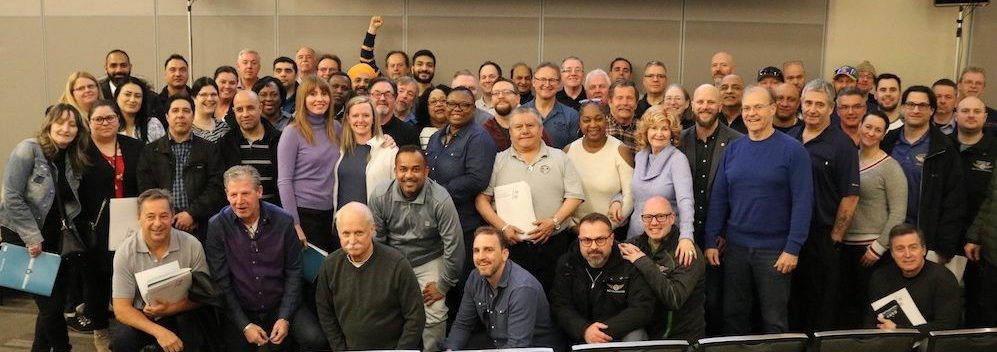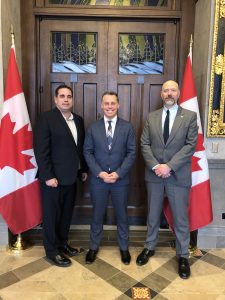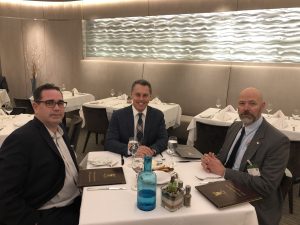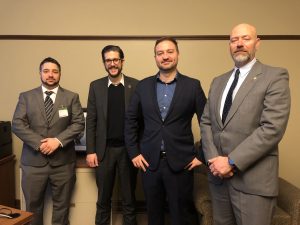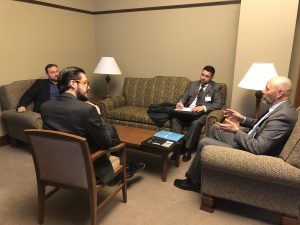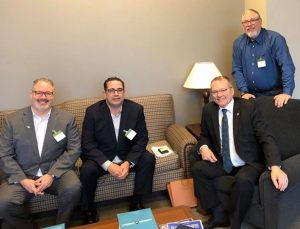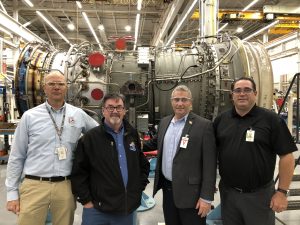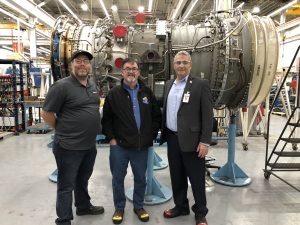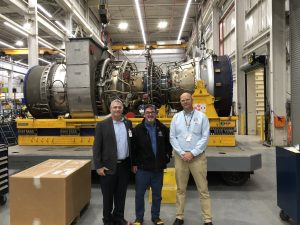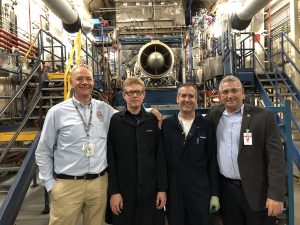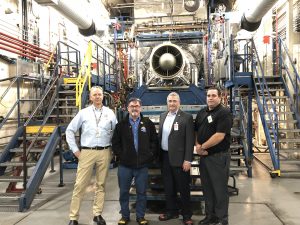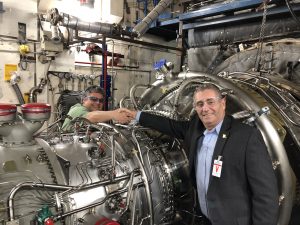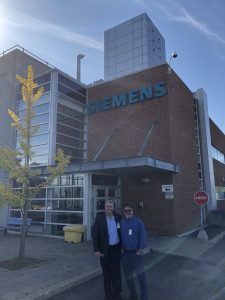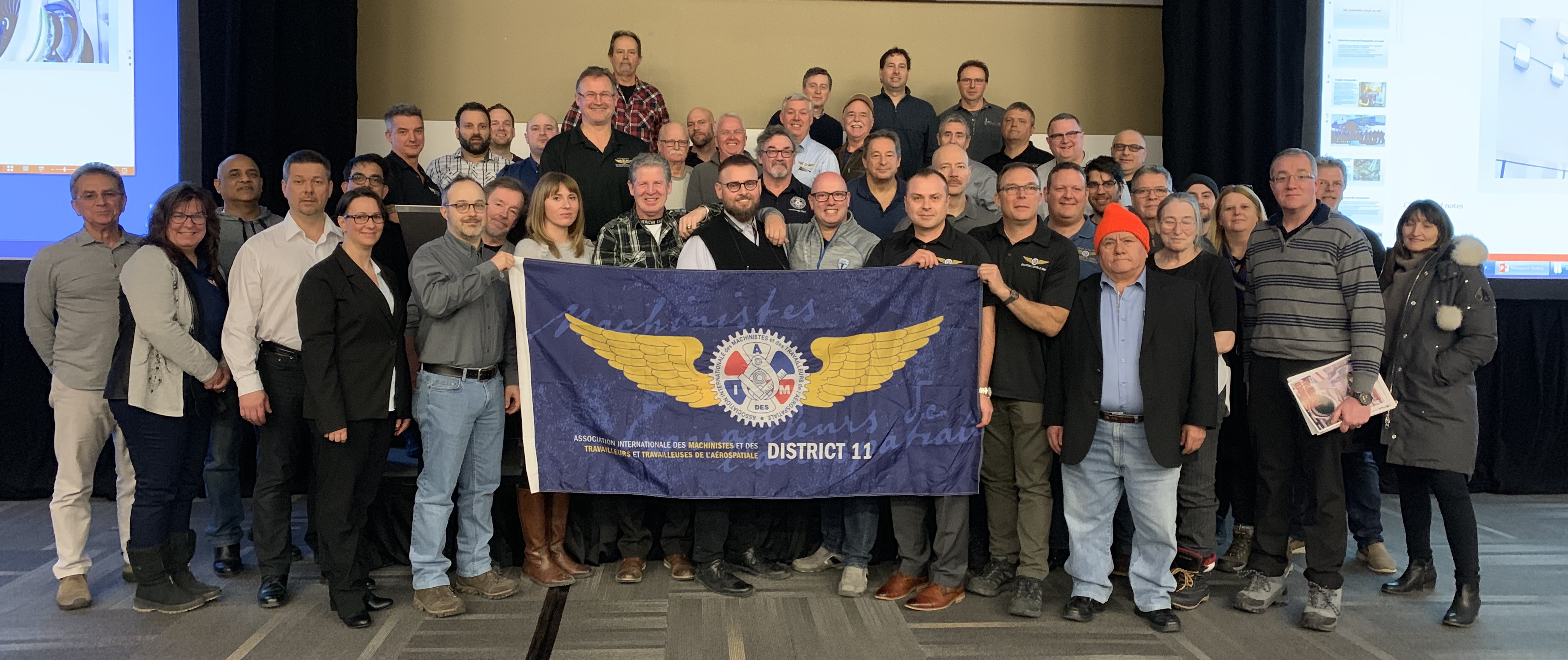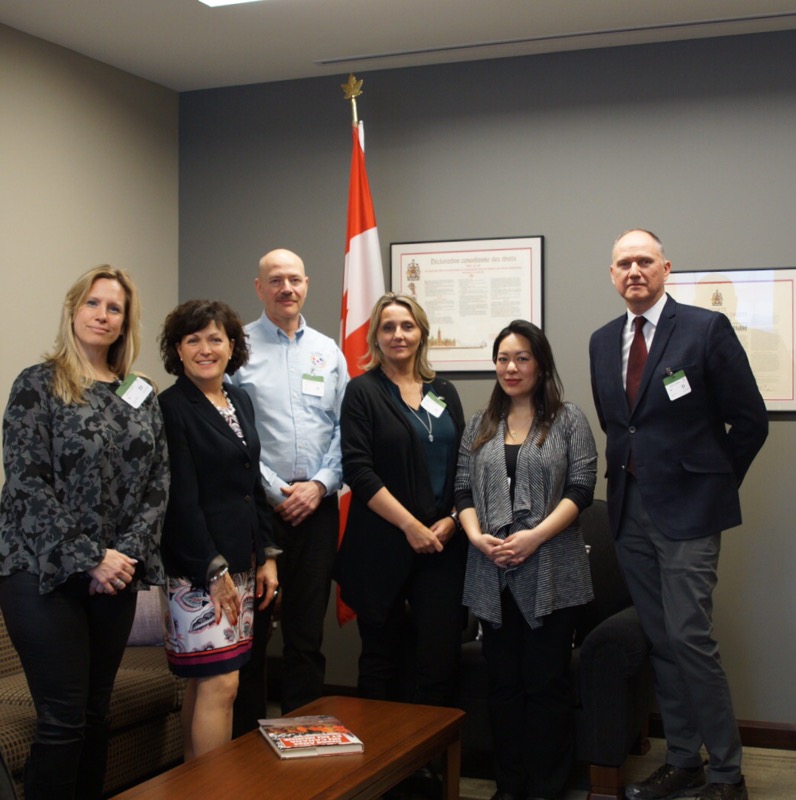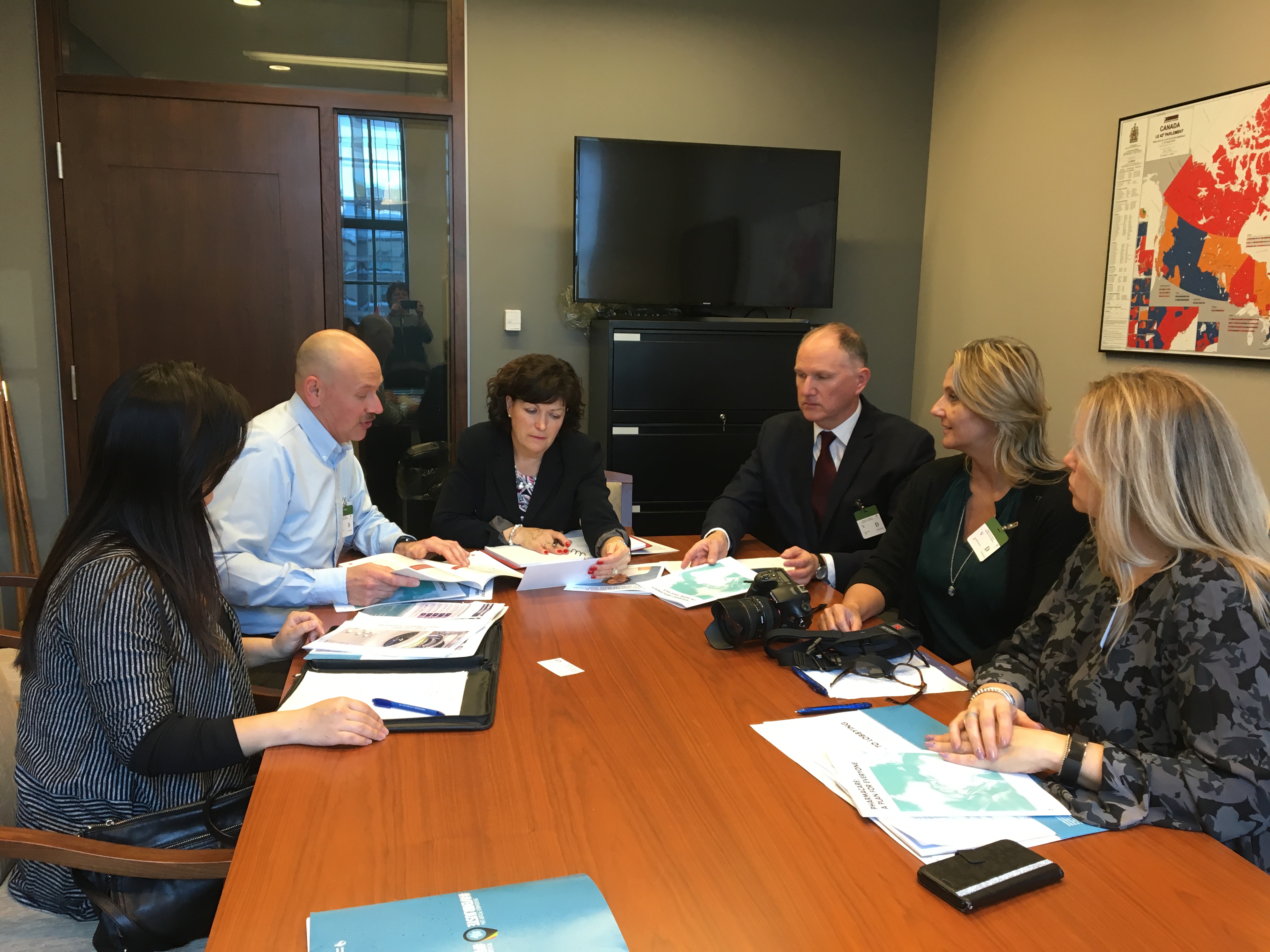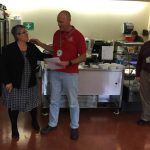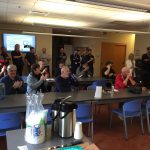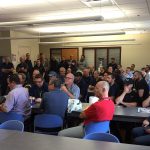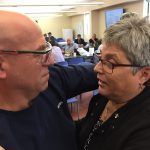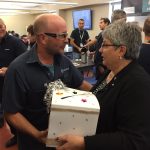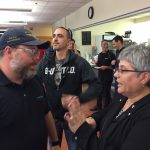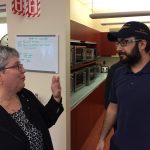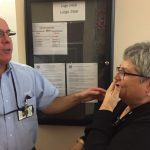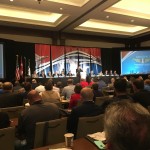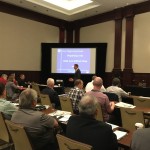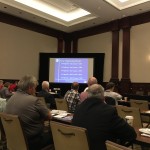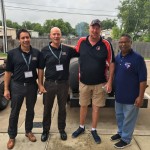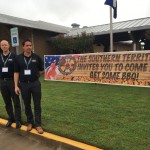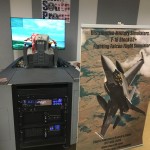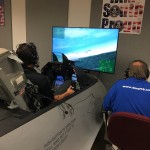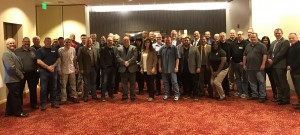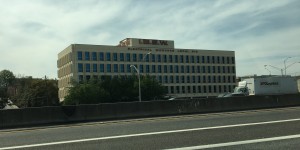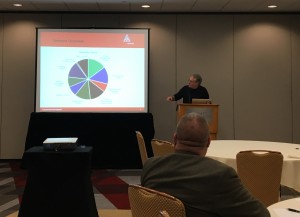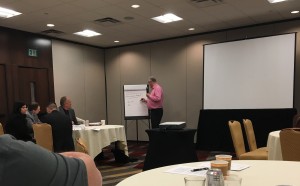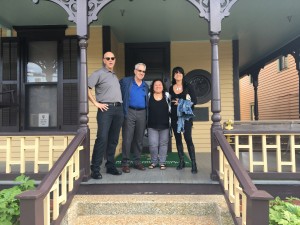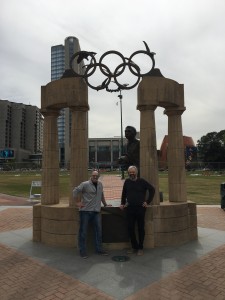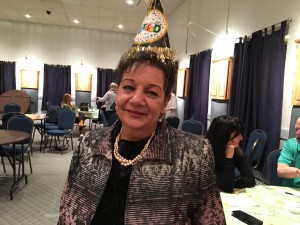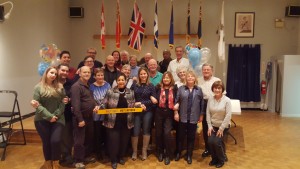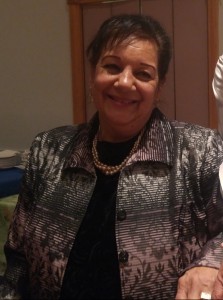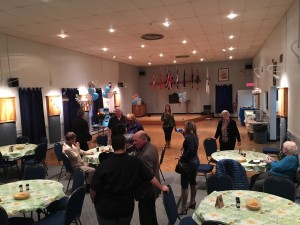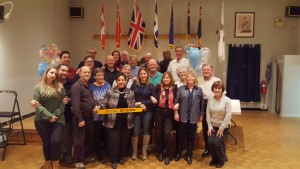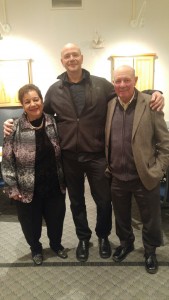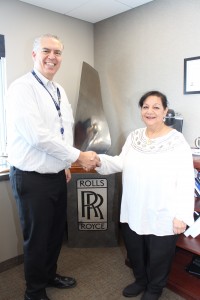
Union and company representatives from Canada, the US and Germany gathered in May for the annual Siemens Labour Meeting, held this year in San Antonio, TX.
One of the most concerning topics discussed was union density within Siemens in North America; Union representation has continued to drop in the US, as Siemens moves work to non-unionized, right-to-work locations such as Charlotte in North Carolina. Unfortunately, it appears that at least one of three GP (or PG) locations in the US will no longer be represented by the IAMAW as the plant in Wellsville, NY, is slated to close by 2020. The future remains uncertain for the other two factories, located in Painted Post and Olean, both also in NY.
Although the International Framework Agreement (https://www.planetlabor.com/en/industrial-relations-en/siemens-new-international-framework-agreement/), put together by Siemens AG and IG Metall (the largest union in Europe, representing most unionized Siemens employees), which was written in order to ensure that unionization will not be hindered in any way at any Siemens plant in the world, was agreed to by Siemens in the US via a memorandum of understanding (https://digitalcommons.wcl.american.edu/cgi/viewcontent.cgi?article=1061&context=lelb), Union representation remains largely unchanged: around 6% for the approximately 50 000 Siemens employees in the US and not much better in Canada at approximately 10% (as compared to approximately 30% Union density in all of Canada) of the approximately 5 000 Siemens Canada employees.
It’s very sad that since the existence of Unions, many companies and governments have sought to control, weaken or eliminate labour groups. These historical articles are very revealing:
https://spartacus-educational.com/GERMANtradeU.htm
https://www.teachers.org.uk/files/trade-unionists-leaflet.pdf
https://www.thecanadianencyclopedia.ca/en/article/winnipeg-general-strike
Unfortunately, even current governments take their turn at trying to control unionism; whether that be the “right-to-work” legislation in the US, or similar bills (C-377 and C-525) in Canada that were passed by the previous Conservative government and subsequently repealed. The purpose of these laws is to undermine Unions.
Some Implications of a Canadian "Right to Work" Law
http://lawofwork.ca/?p=7155
Bill C-377: The Conservatives' Private Members Bill on Union Transparency
The latest trend by corporations indicates a more subtle and publicly “acceptable” modus operandi, one that can be justified using many different, “politically correct” reasons. Outsourcing, subcontracting and relocating are the most common methods used. In this manner, companies may justify moving work elsewhere on the pretense that they need to save money, but the exact reason WHY money needs to be saved is not revealed though is well known to many: to ensure that the CEOs, CFOs and other top-level executives of various companies continue to increase their already disproportionate salaries and shareholders receive increasingly higher returns on their investments, whilst the employees of these companies continue to see flat-lining salaries, cuts to pension plans and benefits. Of course, the worst cases involve job losses.
https://www.cbc.ca/news/business/ceo-income-pay-canadian-worker-1.4462496
https://www.cnbc.com/2018/01/22/heres-how-much-ceo-pay-has-increased-compared-to-yours-over-the-years.html
The answer to these “modern” anti-union tactics is not clear nor is it simple. For example, industries that “cannot” move (e.g. healthcare, airports, education, public security) are more easily organized for that reason. Industries that can be moved, e.g. manufacturing, R&D, IT, etc. are therefore more vulnerable to relocation. However, it was obvious to all present that organization of non-organized Siemens plants is the key to ensuring the fairest possible working conditions, benefits and pay for all Siemens employees.
It was apparent that most, if not all, Siemens work sites currently share two things in common: payroll issues and HR issues. The fact that this is common amongst many Siemens sites is very disconcerting and seems to indicate a recurring problem throughout Siemens. Even the zero-harm culture seems to not be reflected, as in one plant in the US there were already six H&S incidents in 2019, one involving a punctured eye.
There was much discussion regarding the recent announcement of the “spin-off” or “carve out” of the PG segment of Siemens, which would be merged with Siemens Gamesa in order to form a new company that has yet to be named (https://www.bloomberg.com/news/articles/2019-05-07/siemens-plans-gas-and-power-unit-listing-in-2020-after-carve-out). This was voted on by the Siemens Supervisory Board (https://new.siemens.com/global/en/company/about/supervisoryboard.html), and the vote was virtually a tie; this indicates that half or almost half of those on the Board did not agree with this decision. Half of the members on the Board are employee representatives. The new company, subject to approval, will be offered on the stock market at approximately midyear of 2020. Siemens AG would be a minority shareholder.
It’s always great to see my brothers and sisters from IG Metall, IAMAW, IBEW, USW, IUE/CWA and others who also work for Siemens. This meeting is an excellent way to share information and find solutions for the issues that we face. However, the road ahead of us is fraught with challenges and obstacles. We must continue to work together to protect what we’ve fought so hard to obtain, and ensure that our children will benefit from our labour.
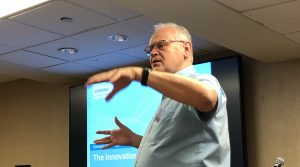
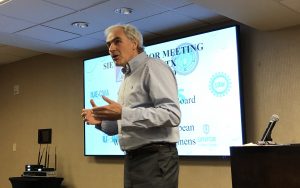
Des représentants des syndicats et des entreprises du Canada, des États-Unis et de l’Allemagne se sont réunis en mai pour la réunion annuelle des travailleurs de Siemens, qui s’est tenue cette année à San Antonio, TX.
L’un des sujets les plus préoccupants a été la densité syndicale au sein de Siemens en Amérique du Nord. La représentation syndicale a continué de chuter aux États-Unis, Siemens transférant son travail dans des lieux de travail non syndiqués, comme Charlotte en Caroline du Nord. Malheureusement, il semble qu’au moins un des trois sites GP (ou PG) aux États-Unis ne sera plus représenté aux États-Unis par l’AIMTA, l’usine de Wellsville, dans l’État de New York, devant fermer ses portes d’ici 2020. L’avenir reste incertain pour les deux autres usines, situées à Painted Post et à Olean, toutes deux également à New York.
Bien que l’accord-cadre international (https://www.planetlabor.com/fr/industrial-relations-en/siemens-new-international-framework-agreement/), élaboré par Siemens AG et IG Metall (le plus grand syndicat d’Europe, représentant la plupart des employés de Siemens), qui a été rédigé de manière à éviter toute entrave à la syndicalisation dans aucune usine Siemens dans le monde, a été approuvé par Siemens aux États-Unis dans le cadre d’un protocole d’accord (https: // digitalcommons.wcl.american.edu/cgi/viewcontent.cgi?article=1061&context=lelb), la représentation syndicale reste en grande partie inchangée: environ 6% pour les quelque 50 000 employés de Siemens aux États-Unis et pas beaucoup mieux au Canada à environ 10% (contre environ 30% de la densité syndicale dans l’ensemble du Canada) sur environ 5 000 employés de Siemens Canada.
C’est très regrettable que, depuis l’existence des syndicats, de nombreuses entreprises et gouvernements aient cherché à nous saper. Ces articles historiques sont très révélateurs:
https://spartacus-educational.com/GERMANtradeU.htm
https://www.teachers.org.uk/files/trade-unionists-leaflet.pdf
https://www.thecanadianencyclopedia.ca/fr/article/winnipeg-general-strike
Malheureusement, même les gouvernements actuels tentent à leur tour de contrôler le syndicalisme; Qu’il s’agisse de la législation américaine sur le «droit de travailler» ou de projets de loi similaires (C-377 et C-525) au Canada, adoptés par le précédent gouvernement conservateur puis abrogés par après. Le but de ces lois est de saper les syndicats.
Some Implications of a Canadian "Right to Work" Law
http://lawofwork.ca/?p=7155
Bill C-377: The Conservatives' Private Members Bill on Union Transparency
La dernière tendance des entreprises indique un modus operandi plus acceptable et publiquement “acceptable”, qui peut être justifié par de nombreuses raisons différentes, “politiquement correctes”. L’externalisation, la sous-traitance et la délocalisation sont les méthodes les plus couramment utilisées. De cette manière, les entreprises peuvent justifier de délocaliser des travaux ailleurs en prétendant qu’elles ont besoin d’économiser de l’argent, mais la raison exacte pour laquelle l’argent doit être épargné n’est pas révélée, mais elle est bien connue de nombreux – les dirigeants de diverses entreprises continuent d’augmenter leurs salaires déjà disproportionnés et les actionnaires reçoivent des rendements de plus en plus élevés sur leurs investissements, tandis que les employés de ces entreprises continuent de percevoir des salaires uniformes, des réductions de régimes de retraite et des avantages. Bien entendu, les pires cas impliquent des pertes d’emploi.
https://www.cbc.ca/news/business/ceo-income-pay-canadian-worker-1.4462496
https://www.cnbc.com/2018/01/22/heres-how-much-ceo-pay-has-increased-compared-to-your-over-the-years.html
La réponse à ces tactiques antisyndicales «modernes» n’est ni claire ni simple. Par exemple, les industries qui «ne peuvent pas» se déplacer (par exemple, les soins de santé, les aéroports, l’éducation, la sécurité publique) s’organisent plus facilement pour cette raison. Industries pouvant être déplacées, par exemple la fabrication, la R & D, l’informatique, etc. sont donc plus vulnérables à la délocalisation. Cependant, il était évident pour tous les participants présents que l’organisation d’installations Siemens non organisées est essentielle pour garantir des conditions de travail, des avantages sociaux et des rémunérations les plus équitables possibles pour tous les employés de Siemens.
Il était évident que la plupart des sites de travail de Siemens, sinon tous, partageaient actuellement deux points communs: les problèmes de paie et les problèmes de ressources humaines. Le fait que cela soit courant dans de nombreux sites Siemens est très déconcertant et semble indiquer un problème récurrent dans l’ensemble de Siemens. Même la culture du zéro préjudice ne semble pas être reflétée, car dans une usine aux États-Unis, il y a déjà eu six incidents de santé et de sécurité en 2019, dont un impliquant un œil perforé.
Il y a eu beaucoup de discussions concernant l’annonce récente de la «scission» du segment PG de Siemens, qui serait fusionné avec Siemens Gamesa afin de former une nouvelle société qui n’a pas encore été nommée (https: //www.bloomberg.com/news/articles/2019-05-07/siemens-plans-gas-and-power-unit-listing-in2020-after-carve-out). Cette décision a été votée par le conseil de surveillance de Siemens (https://new.siemens.com/global/fr/company/about/supervisoryboard.html) et le vote a été quasiment à égalité; cela indique que la moitié ou presque la moitié des membres du conseil ne sont pas d’accord avec cette décision. Les membres du conseil sont composés pour moitié de représentants des employés. La nouvelle société, sous réserve d’approbation, sera offerte sur le marché boursier vers le milieu de l’année 2020. Siemens AG serait un actionnaire minoritaire.
C’est toujours un plaisir de voir mes confrères et consoeurs d’IG Metall, AIMTA, IBEW, USW, IUE / CWA et d’autres qui travaillent également pour Siemens. Cette réunion est un excellent moyen de partager des informations et de trouver des solutions aux problèmes auxquels nous sommes confrontés. Cependant, la route devant nous est semée de défis et d’obstacles. Nous devons continuer à travailler ensemble pour protéger ce que nous avons tant lutté pour obtenir et pour que nos enfants bénéficient de notre travail.


